- Home
- Thomas H. Cook
Elena Page 4
Elena Read online
Page 4
Her hair was almost the color of strawberries, and her name was Elizabeth Brennan. Her eyes were green, and they moved continually. Elena described her in New England Maid: “She was sitting in the school yard, cross-legged on a bench, methodically chewing a piece of Wrigley’s. She was wearing a blue dress with a white lace hem and black shoes, dusty from the playing field. Her hair was red and hung freely to her shoulders. She had taken out the bow and now twirled the ribbon through her fingers with a strange, unchildlike dalliance. Her eyes never came to rest, and everything they fell upon, they singed a little.”
It was Elizabeth who first had the key to my sister. She moved to Wilmot Street not long after Bobby Taylor’s death and lived there with her father, a large, heavyset man, who spent most of his time sitting morosely on the front porch of their house, a mug — not a glass or cup, but a mug — of whiskey in his hand. He drank in this fashion all the time, publicly, his legs sprawled out in front of him, his head drooping down, the mug balanced so uneasily in his hand that the whiskey sometimes sloshed onto the unpainted wooden floor.
In 1919 few people referred to alcoholism as a disease. It was a moral failure, a willful dissoluteness. “Your father is a sot,” Dr. Houston told Elizabeth bluntly the afternoon she finally dragged her father to his office after a bout of coughing blood. “He’s a drunk,” Dr. Houston went on, the voice of his time, “and he will remain a drunk until he makes up his mind to stop drinking.”
But Mr. Brennan couldn’t stop, and so for endless hours he sat out on his porch, outrageously shirtless even in the fall, and sipped at his great brown mug until his eyes finally closed and the mug slipped from his fingers. Then Elizabeth would rush out to him, clean up the mess, rouse him into semiconsciousness, and with great effort maneuver his large hulking body back into the house.
They had moved from Boston, where Mr. Brennan had worked on the docks for many years. No doubt he had pilfered enough un guarded goods there to ease himself into a sodden retirement. “There was an air of lost criminality about him,” Elena wrote in New England Maid, “of small virtues abandoned for the larger one of survival. It was as if life itself had gnawed at him ceaselessly, stripping off the flesh, leaving only bare and shattered bone.” But along with these remains, there was a bit of spirit, too, and when Pastor James came around one morning in a reforming mood and asked him if he believed in hell, Mr. Brennan had the strength of character to reply, “You mean, after this one?”
The house they moved into was only a few blocks down Wilmot Street from our own. It was of modest size, though certainly large enough for two people. It had weathered gray shingles, white clapboard siding, and a dormered roof with one window for each of the two upstairs bedrooms. Mr. Brennan never bothered to furnish it with anything beyond the bare minimum required for human habitation. The living room had one hardwood-and-rattan occasional chair, one press-back armchair, and a single worn settee of more or less Shaker austerity. In his own room upstairs there was a simple metal bed and, oddly out of place, an enormous hall mirror chair upon which Mr. Brennan piled his clothes, leaving the tiny closet empty. There was a wooden half-bed in Elizabeth’s room. It was painted light blue, and some sort of Polynesian jungle scene was carved into the headboard and painted in florid reds and greens. Several short barrister bookshelves stood against the walls, the volumes arranged neatly and catalogued by subject. The floors remained rugless, the windows curtainless. “That house was Mr. Brennan’s monastery,” Elena once said, “and his god was gloom.”
All the work of this disordered household fell to Elizabeth, and she performed it with tireless dedication. She made the meals, dusted, mopped, poured the water from the ice chest, and swept the porch. And despite all this drudgery, she never appeared unhappy. Elena called her Jennifer in New England Maid, and said that for her “life was the grand rich uncle of whom one is never to ask a favor.”
Elizabeth’s one great pleasure was reading, and in this her father fully indulged her. I would often see the two of them making their way to the Standhope Library, Elizabeth skipping ahead while her father trudged heavily behind in his baggy gray pants. He would wait for her outside the library, slumped on the steps, smoking a cigar or wiping his sweaty pink face with a dark blue handkerchief. He would wait for as long as necessary, listlessly staring down the street as if waiting for some signal to begin his life again. Then when Elizabeth finally came through the door, he would grasp the bannister and pull himself to his feet, sweep the large stack of books from Elizabeth’s arms, and walk her safely home.
As might be imagined, Elizabeth’s reading served her very well indeed. Most children in Standhope had little interest in learning more than was minimally required for progressing to the next grade, and so from the first day of her arrival at school, Elizabeth stood out from the rest. For her mind was not only quick but filled with a curious assortment of information that no one else seemed to have.
“She knows everything,” Elena told me excitedly after their first meeting.
I was aimlessly sitting on the front lawn. I looked up and saw that Elena was smiling very brightly.
“She knows the names of all the trees,” she added quickly, “and she knows about strange animals, too. Did you know there’s a fish that lives in a cave and it’s so dark that the fish don’t have eyes?”
“Of course I knew that,” I said, lying through my teeth.
“You never told me about them,” Elena said. She looked offended, as if I had purposefully kept something from her.
I shrugged. “Why should I? They’re just fish.”
“You should talk to Elizabeth sometime, William,” Elena insisted. “You really should. You’d like her a lot.”
I grunted doubtfully, then waved my hand, dismissing the idea.
“You could meet her this afternoon,” Elena said happily.
“Some other time,” I said. I began fiddling with a pair of goggles I had brought out into the yard. Recently I had become obsessed with the idea of becoming an aviator. I was thirteen years old, and while other boys my age were beginning to plan realistic futures for themselves, I was still locked in a childhood fantasy of airborne adventure. I dreamed of soaring over snow-capped Alpine heights or the steaming jungles of the Amazon, the wings of my plane banking left and right in the brilliant silver air. In 1934 Elena sent me a copy of Antoine de Saint-Exupéry’s Night Flight with a little note inside: “We should always remember, William, the obsessions of our youth.”
“I’m going over to visit Elizabeth right now,” Elena declared. “She invited me.”
“Go ahead,” I said as I continued to toy with the goggles.
“But you should come, too,” Elena said. “You should meet her. She’s really nice.”
I placed the goggles on my head and pulled them down over my eyes.
“I don’t need to meet her right this second,” I said. What, after all, could a little girl know about the complexities of that infant science, aerodynamics. “I don’t need to talk to her. She’s just a little girl.”
Elena gave me an accusing glare. “You don’t even know her.”
“So what?”
“Please, William,” she said, grasping my arm.
I eased out of her grip. “Go yourself. You don’t need me.”
“But I want you to meet her.”
Finally I relented, pulling the goggles from my eyes. “All right, but I don’t want to stay very long.”
And so in the spring of 1919, I met Elizabeth Brennan for the first time. She was sitting in her yard with a notebook in her lap, sketching the trees across the way, though not very clearly — a haze of gray smudges over a few jagged black lines.
“This is my brother, William,” Elena said.
I nodded but said nothing.
Elizabeth did not look up immediately. First she scratched a few more lines onto the pad, then tilted her head back to get a broad view of her drawing. Her lips curled down. Then she glanced at me.
“You�
�re tall,” she said.
I smiled manfully. “Yes, I am.”
Elizabeth eyed the goggles. “What are those for?”
“Aviator goggles. For a pilot.”
Elizabeth shook her head. “No they’re not. Those are welders’ goggles. Mechanics use them when they’re welding.”
I could have kicked her. “Pilots use them too,” I declared.
Elizabeth shook her head again. “No they don’t. They use a special kind. Those are just for welders, people like that.” She turned away from me, patted the grass beside her, and spoke directly — and exclusively — to Elena.
“Sit down,” she said.
Elena quickly dropped to the ground beside Elizabeth.
I remained standing, mortified.
“Aren’t you going to sit down?” Elizabeth asked.
“I can’t stay long,” I said stiffly.
“Sit down, William,” Elena said. “You don’t have to go right now. ”
I lowered myself to the ground opposite them and looked at Eliza beth. Just to make conversation I said, “Is your mother home?”
“My mother’s dead,” Elizabeth replied in a voice as featureless as if she had told me nothing at all of consequence.
“Oh,” I sputtered. “I’m sorry.”
“She’s been dead for about a year,” Elizabeth said.
“Well, I …”
She turned briskly to my sister. “That’s a pretty blouse.”
“Thank you,” Elena said, beaming.
“What’s it made of?”
Elena shrugged. “I don’t know.”
Elizabeth touched the upper sleeve of Elena’s blouse, rubbing a portion of it between her fingers.
“Do you know how to sew?” she asked.
Elena shook her head, her eyes downcast. “No.”
Elizabeth nodded. “I didn’t think so. Want me to teach you?”
Elena’s eyes brightened. “Would you?”
“Sure,” Elizabeth said easily. “Do you have a sewing machine?”
“My mother has one.”
Elizabeth smiled, then slowly brought her hand up to Elena’s cheek.
“You’re very pretty,” she said. “You have such a pretty face.”
In her short story “Desire,” Elena described this moment in her life, using the voice of an old woman remembering: “She leaned forward and I could see her hand rising. The fingers stretched out toward my face, tips raised, and pressed against my cheek delicately, as one might touch the canvas of a painting one has grown to love, the fingers sliding tenderly over the brush strokes, seeking the small rills and valleys within the structure of the whole.” Later the old woman walks out into the fields behind her estate and sees the face of the girl in the clouds: “As children, we could find figures in the sky by making the clouds roll and press inward to the shape that we desired. But the face I saw now was not fashioned by a cloud, did not merely occupy some small corner of the sky. It was an elemental force which drew the clouds into itself, shifting light and shadow until the portrait was fully drawn. And it was as if the face had taken the sky as but a canvas upon which to display itself, carving its own wild features with the brush strokes of the wind.”
When, after a moment, Elizabeth withdrew her touch, it was as if a line had been cut between them, a current shut off, and Elena seemed almost physically to slump backward.
I stood up immediately. “We’d better go,” I said to Elena.
Elena’s eyes remained fixed on Elizabeth.
“You go ahead,” she said.
“You should come, too,” I insisted.
“No, you go on. I’ll come later,” Elena said, still staring into Eliza beth’s face.
Elizabeth stood up slowly, brushing bits of grass from her skirt.
“You’d better go with your brother,” she said to Elena. “I have to begin dinner, anyway.”
“But I can stay a little longer,” Elena said.
“Come back tomorrow,” Elizabeth said gently. She looked at me. “You can come back, too, if you want.”
She was not in the least contemptuous of me, but I felt contemptible in her eyes. The power she had over Elena was drawn from a strength that seemed mysterious, and therefore terrifying, something that had the force and authority of an older world. Suddenly the absurd goggles dangling from my hand struck me as being wholly infantile, as repulsive as a soiled diaper.
Elizabeth glanced at Mr. Brennan, slumped in his chair on the porch. He had fallen asleep and the brown mug had tipped in his hand, spilling whiskey across his thighs.
“I’d better go in now,” Elizabeth said.
Elena stood up. “I’ll see you in school tomorrow, okay?”
“Okay,” Elizabeth said. Then she walked toward the house.
Elena’s eyes followed Elizabeth’s retreating figure. Watching her as she watched Elizabeth, I felt as if something of great value was seeping from my life. I bent down quickly and took Elena’s hand. She turned toward me, surprised.
“Let’s go home now,” I said.
Elena nodded. “All right.”
We walked together for a time, neither of us saying anything, Elena entirely absorbed in her newfound friend. Then, suddenly, she skipped away from me, and I was left shuffling along behind her, preoccupied now with a new sensation, that of being utterly alone.
Adolescent loneliness is difficult for an adult to remember or imagine. I do recall, however, that for a time I had not the slightest notion of who I was, or what, in the end, I might become. There was only a sense of aimless floating to which was added an intense and bottomless desire, which, for all its feverishness, had no specific object, person or idea. It was just desire, naked and dimensionless, a need that coiled in the pit of my stomach and pulsed there like a second heart.
In this painful state I frequently took long walks, perhaps believing that I might finally pass through the border of my desire, leave it behind me like a road sign. Almost invariably, these treks ended at the gates of Whitman House, a mental institution where vast numbers of insane people were said to reside.
From the outside, Whitman House appeared tame enough. It was a graceful structure with a large portico supported by four high Doric columns. The road beyond the dark wrought iron gate was bordered with azaleas, and huge oak trees rose above it, shading the drive and lending it a peaceful, gentle aspect. Many years later I was reminded of Whitman House by the movie Gone with the Wind, when the camera rises above a rounded hill revealing Tara in the distance, cradled in a grove of trees. Elena was sitting beside me in the theater. She turned to face me, neither smiling nor frowning. “That’s where Mother died,” she said.
There was a small park across from Whitman House, and at the end of my walks I used to sit down on one of the benches there and watch the people come and go. During visiting hours, the imposing gate was swung open and a steady stream of traffic moved in and out. Beyond the gate, visitors sometimes strolled casually with an inmate friend or relative, who always appeared vaguely baffled, as if still trying to discover that open window through which derangement had entered, soiling the carpet and leaving the carefully appointed room in disarray.
I still don’t know what drew me to Whitman House, or why, of all the places in and around Standhope, I invariably retreated there. Certainly there was a morbid quality to my interest, the craven curiosity one feels outside the door of a brothel and which only fear or prudence can control. Perhaps I have always been attracted to the freakish and disordered because it is so powerful a counterpoint to my own life, rooted as it is, so utterly predictable. And yet I also feared Whit man House as a place where all the sturdy rules by which men live had somehow been set aside, that one abode on earth where, in Cowper’s phrase, “Bacchanalian Madness has its charms.”
Consequently my dismay when one afternoon I saw Elena and Elizabeth making their way toward the open gate of the asylum.
I leaped up and bounded across the street, calling to them, my arm raised
in frantic warning.
“Elena! Elizabeth! Where are you going?”
They looked at me without the slightest sense of anything unusual.
“We’re going inside,” Elizabeth said matter-of-factly.
“You can’t go in there,” I told them, “that’s a nuthouse.”
Elena shot me a vicious look. “Elizabeth knows somebody in there,” she said hotly.
“My grandmother lives in that … what did you call it … nut house?” Elizabeth said.
My mouth dropped open. “Oh, sorry, Elizabeth.”
“That is why we moved to Standhope,” she added. “So we can visit her.”
“So, your grandmother, she’s …”
“Old,” Elizabeth declared. “Very old. She can’t look after herself. Once she set her house on fire in Boston. After that, we brought her down here.”
“She’s just old, William,” Elena said. “That’s the only thing that’s the matter with her. Her mind is old.”
I was unaware of the varieties of madness. To me insanity simply meant explosive moods and terrible violence. I knew about mental retardation. Standhope even had one such person, the thirty-year-old son of Luther Coggins, whose nocturnal wanderings had been the subject of more than one town meeting. On one occasion, Dr. Houston, using the medical language of his time, had referred to him as “the Coggins imbecile.” I also knew that old people went “soft in the head.” But that they might also wind up in Whitman House was news to me. The “nursing home,” of course, had not been invented.
“She’s senile,” Elizabeth said flatly. “But she’s very nice and she doesn’t hurt anybody.”

 The Interrogation
The Interrogation Sacrificial Ground
Sacrificial Ground The Fate of Katherine Carr
The Fate of Katherine Carr What's In A Name
What's In A Name Blood Innocents
Blood Innocents Peril
Peril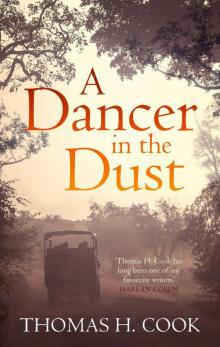 A Dancer In the Dust
A Dancer In the Dust Breakheart Hill
Breakheart Hill The Chatham School Affair
The Chatham School Affair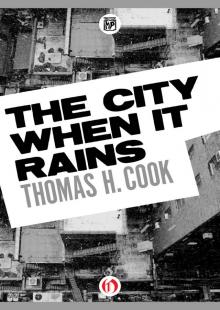 The City When It Rains
The City When It Rains Blood Echoes
Blood Echoes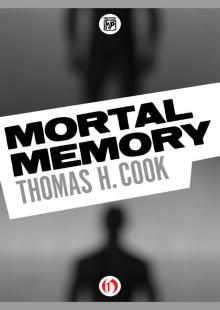 Mortal Memory
Mortal Memory Evidence of Blood
Evidence of Blood Into the Web
Into the Web The Crime of Julian Wells
The Crime of Julian Wells Blood Echoes: The Infamous Alday Mass Murder and Its Aftermath
Blood Echoes: The Infamous Alday Mass Murder and Its Aftermath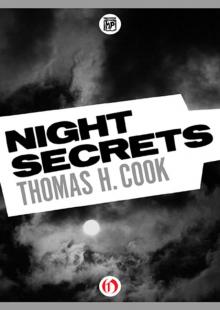 Night Secrets
Night Secrets Places in the Dark
Places in the Dark The Orchids
The Orchids Elena
Elena Streets of Fire
Streets of Fire Instruments of Night
Instruments of Night Sacrificial Ground fc-1
Sacrificial Ground fc-1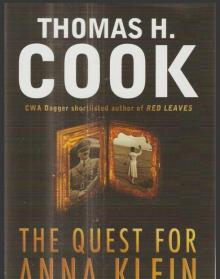 The Quest for Anna Klein
The Quest for Anna Klein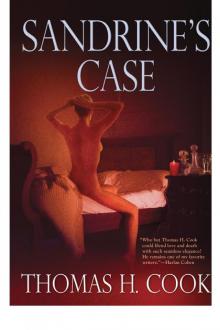 Sandrine's Case
Sandrine's Case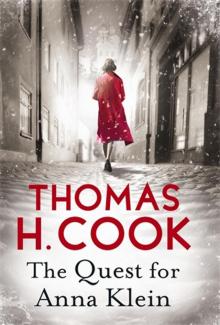 Quest for Anna Klein, The
Quest for Anna Klein, The Fatherhood
Fatherhood Flesh and Blood
Flesh and Blood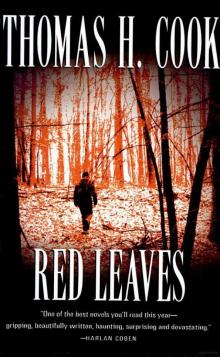 Red Leaves
Red Leaves